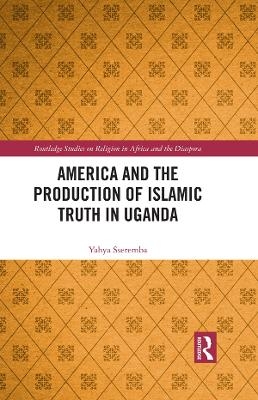
America and the Production of Islamic Truth in Uganda
Seiten
2024
Routledge (Verlag)
978-1-032-41209-2 (ISBN)
Routledge (Verlag)
978-1-032-41209-2 (ISBN)
This book investigates the ways in which the war on terror has transformed the postcolonial state in Africa. Taking American intervention in Islamic education in Uganda as the entry point, the book demonstrates how state control over Islamic truth production and everyday Muslim life has increased.
During the colonial period, the Muslims in Uganda were governed in two ways: partly as lesser citizens within the Christian-dominated civil sphere and partly as members of a distinct Muslim domain. In this domain, a local system of Islamic education developed with a degree of autonomy that reflected the limits of the colonial state in shaping the Muslim subject. In the subsequent postcolonial period, systems of patronage and clientalistic networks dominated, and Muslim leaders were co-opted by the state, but without much real interference in the day-to-day lives of ordinary Muslims. However, as part of the war on terror, the US State Department seeks to bring the mechanisms of Islamic truth production, especially the madrasa, under direct state control and civil society scrutiny. This book argues that the "Muslim domain as a separate entity is coming to an end as it is being absorbed into the civil sphere, unifying the state’s domination of society." The book also analyzes local Ugandan Muslim initiatives to modernise and contextualize their own education and religion and how these initiatives are shaped by and transcend the dominant power.
A thorough exploration of US foreign policy and Islamic education, this book will be of interest to students and scholars in the fields of Political Studies, African Studies and Religious Studies.
During the colonial period, the Muslims in Uganda were governed in two ways: partly as lesser citizens within the Christian-dominated civil sphere and partly as members of a distinct Muslim domain. In this domain, a local system of Islamic education developed with a degree of autonomy that reflected the limits of the colonial state in shaping the Muslim subject. In the subsequent postcolonial period, systems of patronage and clientalistic networks dominated, and Muslim leaders were co-opted by the state, but without much real interference in the day-to-day lives of ordinary Muslims. However, as part of the war on terror, the US State Department seeks to bring the mechanisms of Islamic truth production, especially the madrasa, under direct state control and civil society scrutiny. This book argues that the "Muslim domain as a separate entity is coming to an end as it is being absorbed into the civil sphere, unifying the state’s domination of society." The book also analyzes local Ugandan Muslim initiatives to modernise and contextualize their own education and religion and how these initiatives are shaped by and transcend the dominant power.
A thorough exploration of US foreign policy and Islamic education, this book will be of interest to students and scholars in the fields of Political Studies, African Studies and Religious Studies.
Yahya Sseremba is a research fellow at Makerere Institute of Social Research, Makerere University.
1. Introduction 2. Islam and the limits of centralization in late precolonial Buganda 3. Exclusion by inclusion: The Ugandan state and the Muslim subject 4. The madrasa as a site of the war on terror 5. The diminishing Muslim domain: America’s prescriptions for Islamic education reform 6. Question formulators and data collectors: the production of knowledge about the madrasa 7. Salafism: the boogeyman of the war on terror 8. Africa as conceptual model: Ugandan thought and contemporary Islamic reform 9. Conclusion: Islam and decolonization
| Erscheinungsdatum | 26.07.2023 |
|---|---|
| Reihe/Serie | Routledge Studies on Religion in Africa and the Diaspora |
| Verlagsort | London |
| Sprache | englisch |
| Maße | 156 x 234 mm |
| Gewicht | 400 g |
| Themenwelt | Geisteswissenschaften ► Geschichte ► Regional- / Ländergeschichte |
| Geschichte ► Teilgebiete der Geschichte ► Wirtschaftsgeschichte | |
| Sozialwissenschaften ► Politik / Verwaltung ► Politische Systeme | |
| Sozialwissenschaften ► Politik / Verwaltung ► Staat / Verwaltung | |
| ISBN-10 | 1-032-41209-7 / 1032412097 |
| ISBN-13 | 978-1-032-41209-2 / 9781032412092 |
| Zustand | Neuware |
| Informationen gemäß Produktsicherheitsverordnung (GPSR) | |
| Haben Sie eine Frage zum Produkt? |
Mehr entdecken
aus dem Bereich
aus dem Bereich
Macht und Herrschaft im Zarenreich
Buch | Hardcover (2024)
C.H.Beck (Verlag)
49,90 €


